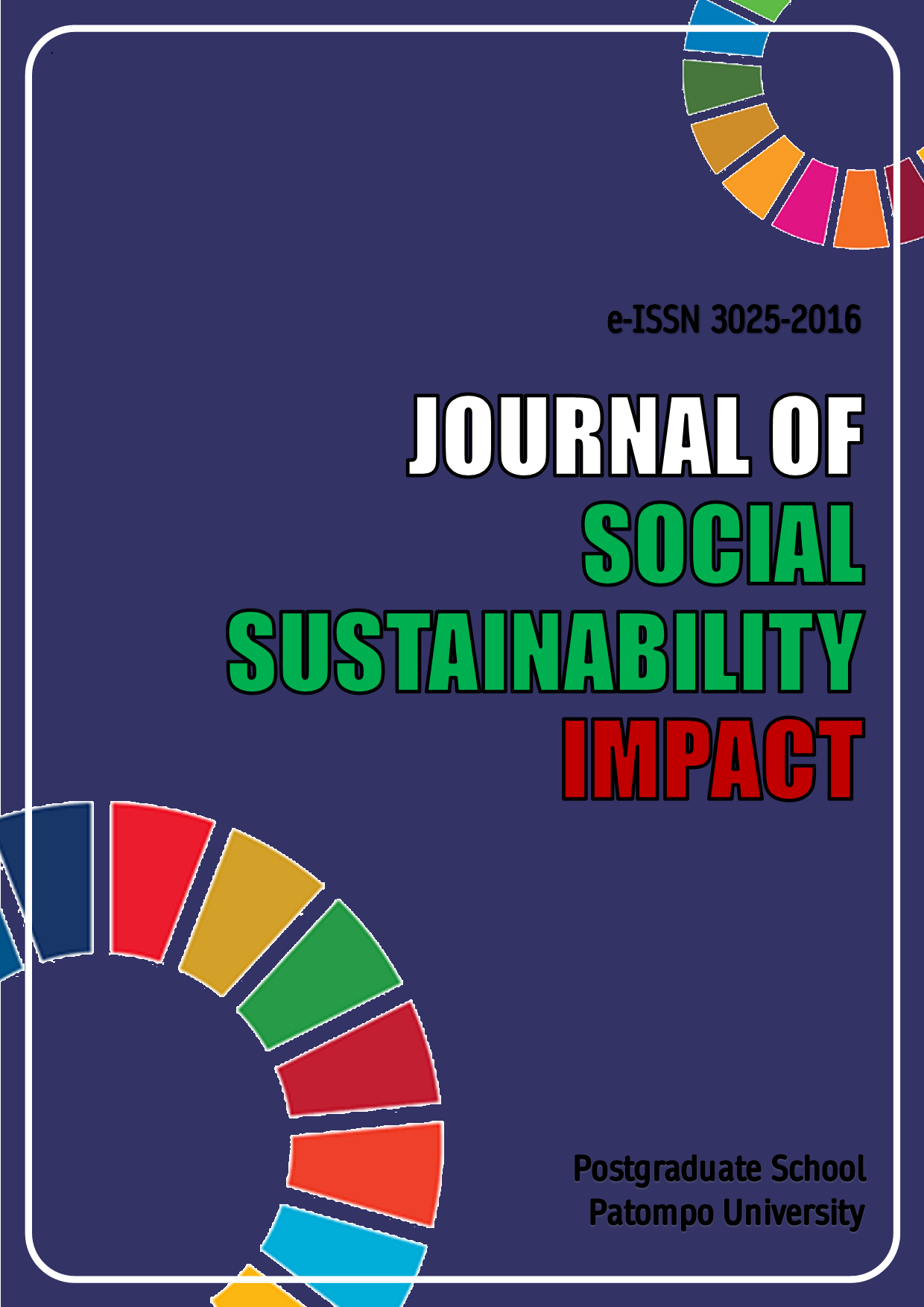The Influence of Regional Public Service Agencies in Vocational High Schools on the Development of Students' Entrepreneurial Spirit
Keywords:
public service agency, entrepreneurship, vocational high school, teaching factoryAbstract
A significant problem many alums of vocational high schools’ face is the limited employment opportunities in industries, contributing to high unemployment rates. Graduates often consider entrepreneurship as an alternative path, especially after the implementation of the Regional Public Service Agency (BLUD). This study aims to understand the potential of BLUD at a vocational high school in Barru Regency, describe the entrepreneurial spirit among its students, and investigate the influence of BLUD on their entrepreneurial development. Conducted using a quantitative ex post facto approach, the study involves 244 twelfth-grade students, with a sample of 49. Data collection methods include field research, library research, observation, documentation, and questionnaires. Findings indicate that BLUD's potential falls within the 'good' category, with 44.90% frequency. Students at vocational high school demonstrate a high tendency towards entrepreneurial spirit, predominantly within the 'very good' category, with a frequency of 40.82%. Furthermore, BLUD significantly influences entrepreneurial development among students, accounting for 86.8% of the variance, with 13.2% influenced by other unexplored factors. The analysis underscores BLUD's positive and significant impact on entrepreneurial development among vocational high school students, with many expressing interests in entrepreneurship post-graduation.
References
Bryman, A. (2016). Social research methods. Oxford university press.
Cohen, L., Manion, L., & Morrison, K. (2018). Research methods in education (8th ed.). Routledge, Taylor & Francis Group.
Creswell, J. W., & Creswell, J. D. (2017). Research design: Qualitative, quantitative, and mixed methods approaches. Sage publications.
Fairman, B., & Voak, A. (2023). Building a Culturally Relevant Workforce in Indonesia: Preventing Vocational Imperialism. Cambridge Scholars Publishing.
Hair, J. F., Black, W. C., Babin, B. J., Anderson, R. E., & Tatham, R. (2019). Multivariate Data Analysis. Cengage Learning EMEA.
Kautonen, T., Van Gelderen, M., & Fink, M. (2015). Robustness of the theory of planned behavior in predicting entrepreneurial intentions and actions. Entrepreneurship Theory and Practice, 39(3), 655–674.
Kayyali, M. (2024). Career Development in Higher Education: Best Practices and Innovations. In Advancing Student Employability Through Higher Education (pp. 1–19). IGI Global.
Kumar, R. (2019). Research Methodology: a step-by-step guide for beginners (5th ed.). SAGE.
Kusumojanto, D. D., Wibowo, A., Kustiandi, J., & Narmaditya, B. S. (2021). Do entrepreneurship education and environment promote students’ entrepreneurial intention? the role of entrepreneurial attitude. Cogent Education, 8(1), 1948660.
Lamada, M. S., Sanatang, S., Ifani, A. Z., & Hidayat, D. H. (2022). Evaluation in Assessment of Student Competence: Application of the Indonesian Student Competency Assessment (AKSI) in Elementary Schools. International Journal of Environment, Engineering and Education, 4(2), 66–75. https://doi.org/10.55151/ijeedu.v4i2.81
Largan, C., & Morris, T. (2019). Qualitative secondary research: A step-by-step guide. Sage.
Lune, H., & Berg, B. L. (2016). Qualitative research methods for the social sciences. Pearson Higher Ed.
Mann, H. (1855). Lectures on education. WB Fowle and N. Capen.
Pandey, P., & Pandey, M. M. (2021). Research methodology tools and techniques. Bridge Center.
Rădulescu, C. V., Burlacu, S., Bodislav, D. A., & Bran, F. (2020). Entrepreneurial education in the context of the imperative development of sustainable business. European Journal of Sustainable Development, 9(4), 93.
Sarwade, R. (2021). Public Health and Environmental Problems: Study on the Bhur Bhur Pochamma Tribe in Latur District of Maharashtra, India. International Journal of Environment, Engineering and Education, 3(3), 102–109. https://doi.org/10.55151/ijeedu.v3i3.62
Suarlin, S., & Ali, M. I. (2020). The Effect of Environmental Education Learning on Students at University. International Journal of Environment, Engineering and Education, 2(3), 49–56. https://doi.org/10.55151/ijeedu.v2i3.39
Tomasevski, K. (2003). Education denied: Costs and remedies. Zed books.
Wahrini, R., Nuridayanti, N., & Makmur, E. (2019). The Role of Teachers in Awareness of Occupational Safety and Health (OSH) Vocational School Students. International Journal of Environment, Engineering and Education, 1(3), 67–74. https://doi.org/10.55151/ijeedu.v1i3.18
Zhao, Y., Zhao, X., Shi, J., Du, H., Marjerison, R. K., & Peng, C. (2022). Impact of entrepreneurship education in colleges and universities on entrepreneurial entry and performance. Economic Research-Ekonomska Istraživanja, 35(1), 6165–6184.
Downloads
Published
How to Cite
Issue
Section
License
Copyright (c) 2024 Chairil Chairil, Muh. Yahya, Andi Mulyadi Radjab, Suarlin Suarlin

This work is licensed under a Creative Commons Attribution-ShareAlike 4.0 International License.




